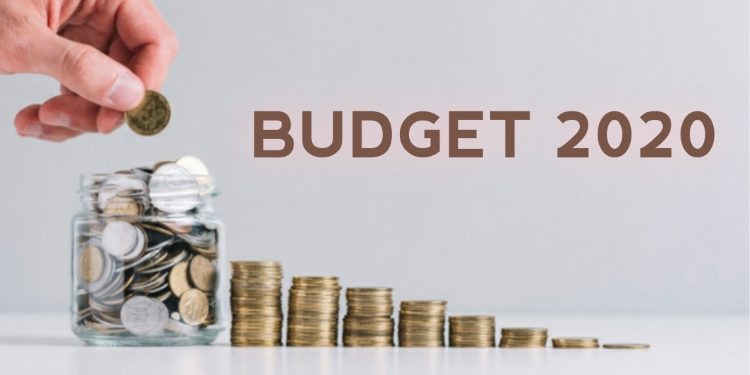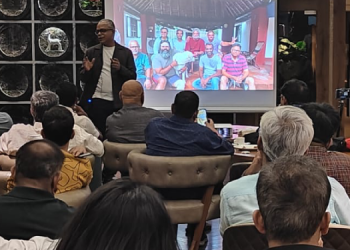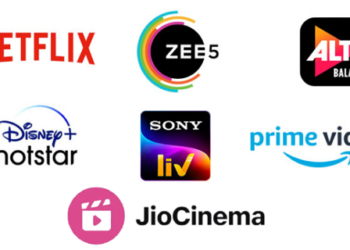The stage is set for the presentation of the Union Budget 2020. Expectations are high as the industry looks for measures to boost the economy as the country is going through testing times. There has been a slowdown in employment rates and in some key sectors.
The Finance Minister Ms. Nirmala Sitharaman, has a tough challenge in presenting this year’s budget. Here are some suggestions and expectations from the Advertising industry, Digital Agencies, and Radio.

Anand Bhadkamkar – CEO, Dentsu Aegis Network India.
Budget perspective definitely an impetus for growth now that’s what we are expecting at least from looking at what the government has been doing in the last six months is trying to bring that stimulus back. Expecting the budget to be more people-friendly and growth-friendly for better investments into infrastructure and developments. Manufacturing because we have been speaking about making India forward actually, hopefully, some progress towards tax benefits or tax holidays and giving a boost to the MSME sector.
From an advertising point of view what we need is more spur I would say, towards the industry. There are a few industries the FMCG or automotive which actually does drive-by significantly giving that boost in those sectors which is beneficial to us. Also, the benefit from the budget would be is having more cash in the hands of people, people having that ability to spend which will actually boost the economy. Advertising in a way follows or gains and leads to economic growth as well. The more people start spending the buoyance comes in and spurs economic growth.
We need that growth stimulus and those messages to avoid the fear of a tax regime, and the government deciding to make it more transparent, more digital and a lesser sort of license raj or intervention in that sense and more rule-based which sort of starts growing on its own actually. At times that’s where something which gets reactive and the businesses get jarring. Just getting the right messages across, right down to the grass-root level.

Ashit Kukian, CEO, Radio City
Radio has been one of the most popular and pervasive mediums to provide entertainment and information to the masses. With another transformational year to look forward to, we expect the budget to bring the required initiatives to strengthen the growth trajectory. As part of the Union Budget 2020, we hope to see the GST rate for radio and broadcast industry reduced to 5 percent, compared to the current rate of 18 percent. This will boost advertising, enabling substantial growth as against the muted growth in 2019.
We also hope to see focused initiatives by the government in rationalizing the cost for the industry which will help regulate the sector and contribute to the revenue growth. The government’s increased FDI limit from 74 percent to 100 percent will encourage more investments and pave the way for long-term growth. We are positive about the impending opportunities and are looking forward to favorable measures from the government.”

Naresh Gupta – Co-Founder and Head Intern at Bang in the Middle
Change in the taxation structure across both direct and indirect. This should help the consumers have more money in hand and companies don’t get burdened by high compliance cost
I would like to see the service industry like communication get easier access to funds. This wouldn’t help the new age communication companies to expand and grow in India. Create a structure that motivates the companies in India to start investing abroad and become MNC

Prasad Shejale, Founder and CEO, Logicserve Digital.
Taking a step closer to the Digital India initiative, the budget should include a key emphasis on the implementation of the National Centre of Artificial Intelligence as it will prepare organizations for better human-machine partnership and analysis consumer patterns using Big Data. Furthermore, building 1 lakh digital villages will open up an untapped marketplace for digital marketers to cater to consumer needs with bespoke services that were earlier consumed only in urban and semi-urban areas.
Also, the budget should include measures to ensure that India continues to lead in the mobile data consumption space that has grown about 50 times over the past five years. While developing regulations around the digital economy for the protection and privacy of end-consumers, the Government must adopt a pragmatic approach so that new opportunities open up for existing businesses operating within the premises of fair practices.

Shrenik Gandhi, Chief Executive Officer, and Co-Founder, White Rivers Media
India maintained its tag of being the world’s fastest-growing economy, despite grim global projections in 2019 as per IMF, which also projected India’s growth rate at 7% in 2020. This bears testimony to its potential of spearheading global economic growth. Budget 2020 is, therefore, Mrs. Sitharaman’s opportunity to make a difference not only to Indian but also to the global economy. One of the key accelerators to this will be enhancing the net disposable income, which is directly proportional to the income tax cuts, affecting the demand for goods and services, finally snowballing into economic growth or slowdown. Budget 2020 should, therefore, focus on expenditure boost by lowering the personal tax rates, leading to higher savings, to pump the economy.

Kunal Lakhara, VP of Finance and Operations, Pocket Aces:
We are very optimistic about recovery and foresee the economy quickly picking pace. The media and entertainment industry has a huge potential to create a number of employment opportunities, increase export services and enhance tourism. In the last budget, the benefit of single-window approvals was a major boost. This year, we hope the government focuses on steps to provide capital to the industry players. This could be in the form of incentivizing banks and other financial institutions to lend money to industry participants especially start-ups in the sector. Furthermore, the government could do very well by lowering tax rates and removing exemptions, revisit tax regulations, especially for start-ups. This will not only provide tax reforms but also enhance the efficiency of tax collections.
On the personal front, the government should reduce taxes by enhancing the slab rates. With lower tax incidence, more will be left with the consumers to spend and consume, which in turn will create demand for products and services.
















